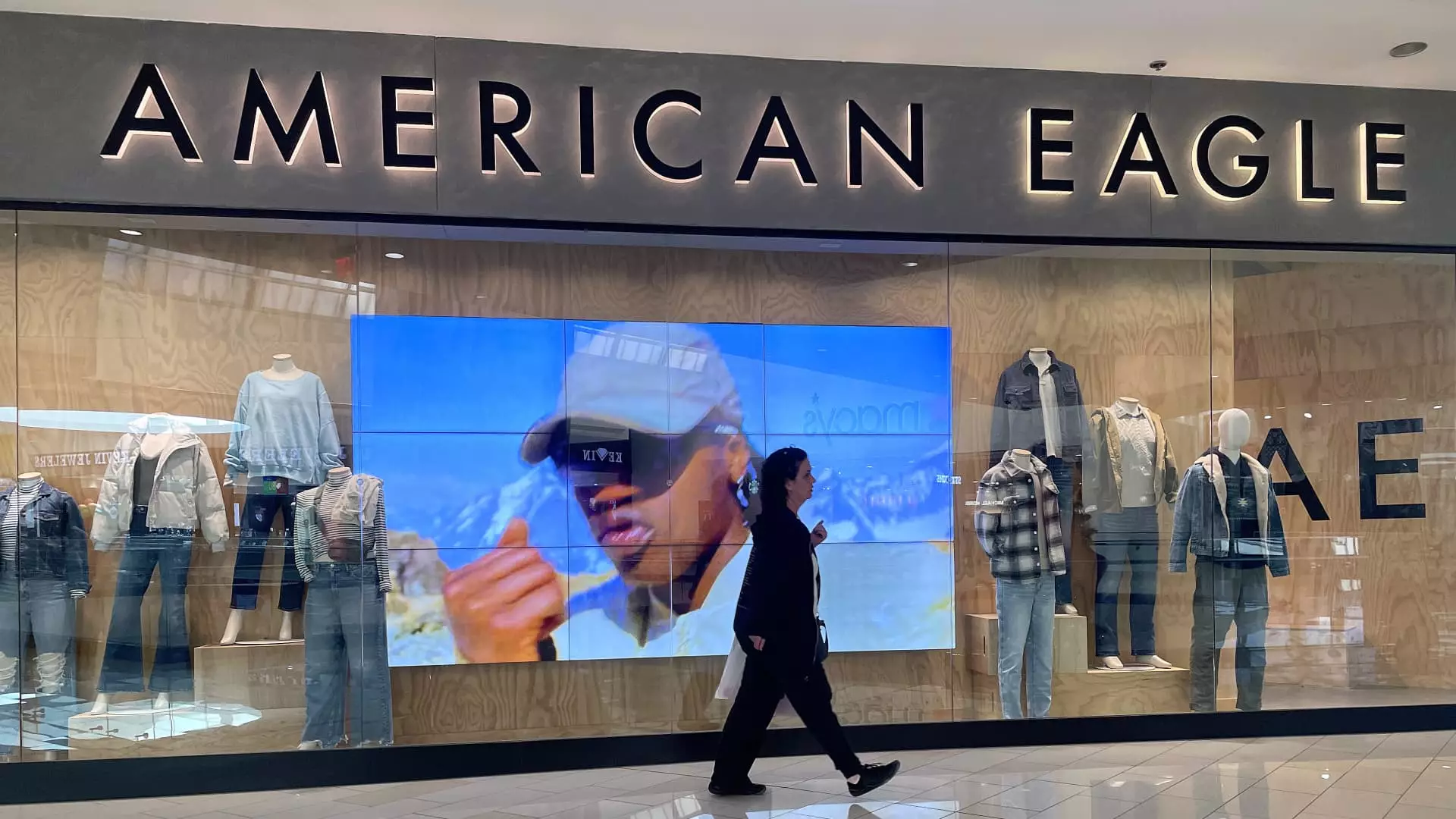In a legal move that underscores ongoing tensions in the world of e-commerce and trademark protection, American Eagle Outfitters has initiated a lawsuit against Amazon, alleging significant trademark infringement. The heart of the conflict revolves around American Eagle’s Aerie clothing line—a brand launched in 2006, focusing on intimate apparel and loungewear that prides itself on quality and originality. By suggesting that Amazon has deceptively used the Aerie and Offline by Aerie trademarks to mislead consumers, American Eagle is raising questions not just about brand integrity, but also about the marketplace dynamics on platforms rife with third-party sellers.
American Eagle’s lawsuit, filed in the Southern District of New York, paints a troubling picture of consumer confusion orchestrated by Amazon’s methods. The primary accusation alleges that searches conducted on popular engines like Google often yield Amazon-promoted products that are mere imitations of Aerie’s original offerings. According to the complaint, when consumers search for authentic Aerie products, they instead encounter inferior “knock-offs” on Amazon—precisely branded to mislead shoppers into thinking they are purchasing genuine Aerie items. This scenario raises critical concerns about how easily consumers can be swayed by misleading advertising in an increasingly crowded online space.
The lawsuit highlights a broader issue: the delicate balance companies must strike between brand identity and distribution channels. American Eagle has expressed its intent to carefully cultivate Aerie’s brand experience, intentionally opting out of partnerships with large online retailers like Amazon. This decision underscores a strategic vision that emphasizes brand integrity and consumer trust. The allegations suggest that American Eagle’s branding has been undermined, as misleading advertisements prompt shoppers to associate Aerie’s name with these subpar imitations, ultimately diluting the brand’s prestige and value.
The case also illuminates a pervasive issue within Amazon’s marketplace—an online environment populated by a plethora of third-party sellers. While this model allows for greater consumer choice and price competition, it also opens the door to counterfeit and knock-off products. American Eagle’s experience echoes complaints from other brands, such as Birkenstock and Daimler AG, who have wrestled with similar issues regarding counterfeit products sold through Amazon’s platform. In 2019, Amazon acknowledged the growing threat posed by counterfeit goods in its annual financial filings, indicating this is not an isolated incident but rather a systemic challenge that undermines brand trust across multiple industries.
In light of escalating legal challenges from multiple brands, Amazon has attempted to bolster its defenses against counterfeiting through various measures. These include implementing policies to protect trademarks, developing law enforcement collaborations, and investing in innovative technologies to identify and address counterfeit listings. Nevertheless, the effectiveness of these initiatives remains a topic of debate, especially as brands like American Eagle continue to seek legal recourse.
The outcome of American Eagle’s lawsuit against Amazon could set important precedents in the evolving landscape of e-commerce and intellectual property rights. With the digital marketplace expanding rapidly, the stakes for brands seeking to protect their trademarks have never been higher. This case raises essential questions about how online platforms should navigate the delicate balance between market access for third-party sellers and rigorous enforcement of intellectual property rights.
The implications of this lawsuit extend beyond the immediate parties involved; it speaks to the broader struggle of maintaining brand integrity in an era where consumer loyalty can be quickly complicated by deceptive advertising tactics and counterfeit goods. As we observe this case unfold, it will be critical for both brands and e-commerce platforms to consider their roles in fostering a marketplace that respects and protects intellectual property, thereby ensuring that consumer trust remains intact amid a digital influx of choices.

Leave a Reply